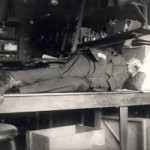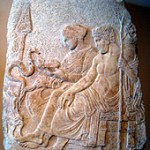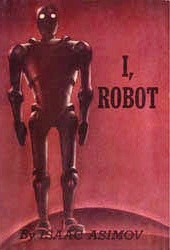“For myself I never found need of more than four or five hours’ sleep in the twenty-four. I never dream.”
So said the famously hard-working inventor Thomas Edison in 1921 in his Diary and Sundry Observations. Edison claimed the only truly restful sleep was totally unconscious, and he regarded dreaming as a waste of mental energy that could be put to more productive use in waking life.
Nearly a century later Larry Page, another iconic figure of technological progress, offered a very different approach to dreams. In a 2009 commencement address at the University of Michigan he said, “You know what it’s like to wake up in the middle of the night with a vivid dream? And you know how, if you don’t have a pencil and pad by the bed to write it down, it will be completely gone the next morning? Well, I had one of those dreams when I was 23.” Page awoke from his dream and immediately began writing notes about downloading the entire worldwide web with all links intact—the seed idea for what he later built into Google. His advice to the graduates: “When a really great dream shows up, grab it!”
Which of these two world-changing innovators had it right? Should we strictly limit our sleep and ignore our dreams as Edison did? Or should we listen to our dreams and try to follow them as Page recommended?



The world is filled with people trying to be like Edison, working nonstop and vowing to “sleep when I’m dead,” but this behavior appears foolish and self-defeating in light of current research in sleep medicine. Numerous studies over the past several decades have shown that inadequate sleep has a negative impact on human health, with harmful effects on our emotional, cognitive, physical, and immunological well-being. What counts as “adequate” differs for each individual, but only a tiny portion of the population can sleep four or five hours a night and function the next day in an optimally healthy way.
The basic message of this research: A sure way to make yourself less productive is to artificially limit your individual sleep needs.
We can’t do without sleep. But can we do without dreams?
The scientific evidence is less clear on this point. Some people insist they never remember their dreams, although closer investigation usually finds they can recall a few dreams, just very infrequently. (Even Edison mentioned a couple of dreams in his diary.) Demographic surveys indicate most people remember one or two dreams a week. Women tend to remember more dreams than men, and younger people more than older people.
Intriguingly, researchers have found that dream recall can be dramatically increased with little more than simple encouragement and having a pad of paper and pen by one’s bedside, as Page did. It’s fairly easy, in other words, to remember more dreams if that’s what you want. Build it and they will come.
Neuroscientists have begun to fill in the picture of what happens in the brain while we’re dreaming. During rapid eye movement (REM) sleep, when most dreams seem to occur, activity slows down in the prefrontal cortex, the part of the brain most responsible for focused rational thought. Activity increases in the limbic system, an older part of the brain involved with emotions, memory formation, and instinctual responses (e.g., fight/flight, sexual arousal). Neural activity also increases in regions of the brain devoted to visual processing.
These findings make perfect sense in relation to empirical studies of dream content showing it to be loosely structured, highly associative, emotionally varied, and filled with intense visual images. The neuroscience of REM sleep matches up well with people’s subjective experiences of dreams, giving us more confidence there’s a real connection here between brain and mind.
Dreaming now seems best understood as the psychological expression of a distinctive mode of brain functioning devoted to memory, emotion, and playful meaning-making. It is inherently and powerfully creative, not only in producing experiential worlds of astonishing depth and realism but also in stretching our minds to make surprising new connections between disparate ideas, feelings, and impressions. Contrary to the stereotype of dreams as nothing but random nonsense, current research shows their content is meaningful at many levels, accurately reflecting our most important concerns and activities in waking life.
Edison was right to this extent: We can ignore our dreams, if we so choose. But Page was right on the bigger point. Dreaming is not wasteful; it has its own neurological integrity and psychological value. It taps into a deep inner wellspring of creative thinking that leads us beyond what is to imagine what might be.
In this sense we can think of dreaming as a kind of innate technology of the mind, a natural tool of creative consciousness.
The question for dream researchers then becomes, how can we use that tool better? How can we refine it, improve it, make it stronger?
This might sound like the start of a Dr. Frankenstein tale, with mad scientists rashly meddling in mysteries they don’t understand. But we are not the first to ask these questions. Throughout history, in cultures all over the world, people have used a variety of techniques to actively stimulate their inborn capacity for powerful dreaming.
For example, the Native American ritual of the vision quest involves several days and nights of solitary fasting in the wilderness as a means of inviting a revelatory dream. The Muslim practice of istikhara uses special prayers, purifications, and sleep positions to elicit a dream that helps resolve an important question or decision. The Indian sage Naropa taught his followers how to control their dreams through yogic methods of chanting, breathing, visualizations, and bodily postures. Temples devoted to the Greek god Asclepius thrived for centuries as holy sites where people came to worship, diet, exercise, and sleep in hopes of receiving a healing dream.
Cultural practices like these represent time-honored, ethically sensitive techniques for intensifying dreams and deriving more insight from them.
Eventually we will integrate our best models of dream content with highly advanced neuroscientific maps of brain activity during sleep, and this will set the stage for a new generation of technologies that directly stimulate the brain to produce more creative dream experiences. By fine-tuning the neural parameters of sleep we’ll be able to filter out the noise and amplify the signals of the dreaming imagination.

Undoubtedly this will be good news for the movie business. As George Lucas recently said at the USC School of Cinematic Arts when asked to predict the future of film, “The next step is to be able to control your dreams. You’ll just tap into a different part of your brain. You’re just going to put a hat on or plug into the computer and create your own world… We’ll be able to do the dream thing 10, 15 years from now. It’s not some pie-in-the-sky thing.”
That timeline seems about right to me, although I would envision devices that generate a more interactive and mutually respectful process between waking and dreaming, with a focus on awareness and growth rather than control for control’s sake.
Beyond their entertainment value, these dream technologies of the not-so-distant future will help us cultivate a more unified consciousness that takes advantage of our brain’s amazing creativity throughout all phases of the sleep-wake cycle.
####
Note: This essay also appears on the Huffington Post: http://www.huffingtonpost.com/kelly-bulkeley-phd/the-technology-of-dreaming_b_4378041.html
 The latest issue of the journal Consciousness and Cognition has an article of mine titled “Digital dream analysis: A revised method,” that’s the fruition of several years of data-driven work. It lays out the latest developments in testing and refining the word search template programmed into the Sleep and Dream Database, a digital archive and search engine designed to promote scientific dream research. The original article I wrote using this word search method was in a 2009 issue of Consciousness and Cognition, titled “Seeking patterns in dream content: A systematic approach to word searches.” The new article builds on that earlier piece and extends it in two ways.
The latest issue of the journal Consciousness and Cognition has an article of mine titled “Digital dream analysis: A revised method,” that’s the fruition of several years of data-driven work. It lays out the latest developments in testing and refining the word search template programmed into the Sleep and Dream Database, a digital archive and search engine designed to promote scientific dream research. The original article I wrote using this word search method was in a 2009 issue of Consciousness and Cognition, titled “Seeking patterns in dream content: A systematic approach to word searches.” The new article builds on that earlier piece and extends it in two ways.










